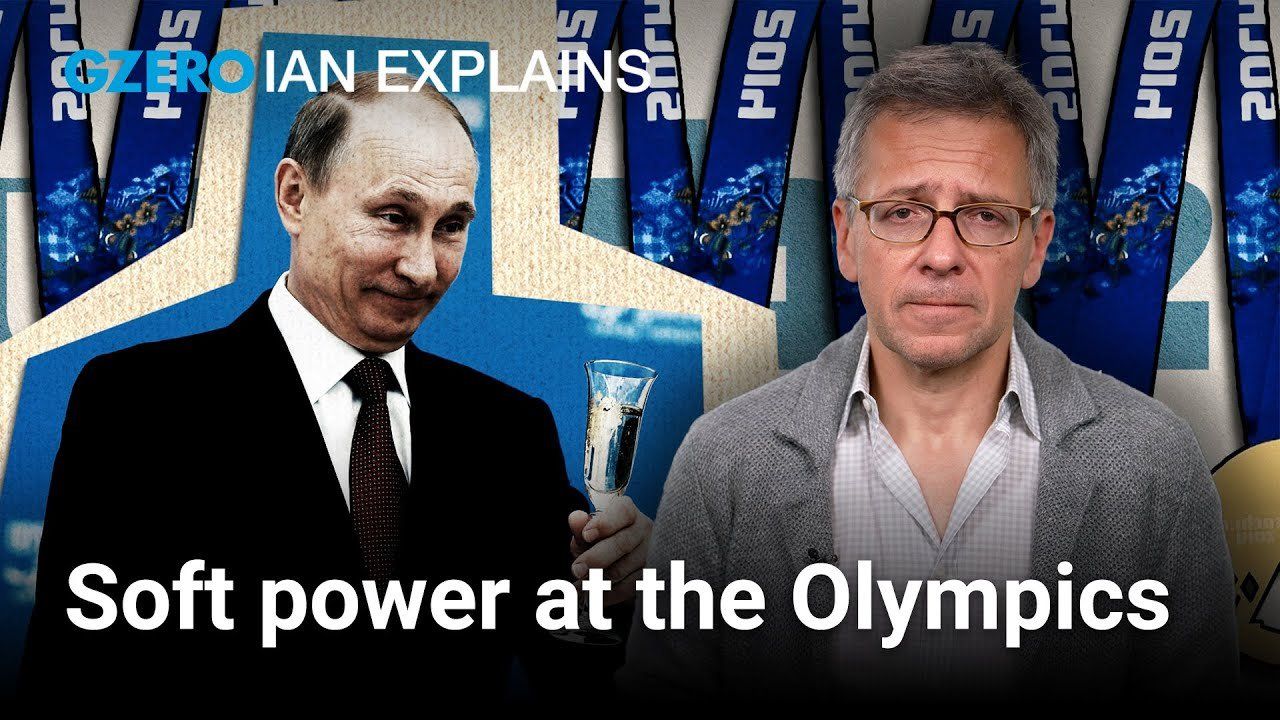GZERO World Clips
Ian Explains: Why authoritarian rulers love the Olympics

Why authoritarian rulers love the Olympics | Ian Bremmer Explains

The International Olympic Committee says global politics have no place at the Olympics and insists the Olympics promote democratic values through sports, so why does the IOC keep awarding the Games to authoritarian countries like Russia and China?
On Ian Explains, Ian Bremmer breaks down the complicated relationship between global politics and the Olympic Games. The IOC has an uncomfortable history of cozying up to authoritarian rulers, like Russian President Vladimir Putin and Chinese President Xi Jinping, who use the Games as propaganda, who use the Games to project the image of their country they want the world to see. Calls are growing for more transparency in the IOC, which has faced accusations of corruption, bribery, and bid-rigging in recent years. The 2024 Olympics will be a test of the IOC’s ability to remain politically neutral while balancing the ideals of democracy with the geopolitical realities of a world that’s more fragmented than ever. Can they stick the landing?
Watch more on the full episode of GZERO World with Ian Bremmer, in which Washington Post sports columnist Sally Jenkins discusses security concerns and logistical challenges at the 2024 Paris Olympic Games, the complicated relationship between global politics and the events, and sportswashing.
New digital episodes of GZERO World are released every Monday on YouTube. Don''t miss an episode: Subscribe to GZERO's YouTube channel and turn on notifications (🔔).
People in support of former South Korean President Yoon Suk Yeol rally near Seoul Central District Court in Seoul on Feb. 19, 2026. The court sentenced him to life imprisonment the same day for leading an insurrection with his short-lived declaration of martial law in December 2024.
65: The age of former South Korean President Yoon Suk Yeol, who was sentenced to life in prison on Thursday after being found guilty of plotting an insurrection when he declared martial law in 2024.
In an era when geopolitics can feel overwhelming and remote, sometimes the best messengers are made of felt and foam.
The Hungarian election is off to the races, and nationalist Prime Minister Viktor Orbán is facing his most serious challenger in 16 years.
Does skepticism rule the day in politics? Public opinion data collected as part of the Munich Security Conference’s annual report found that large shares of respondents in G7 and several BRICS countries believed their governments’ policies would leave future generations worse off.